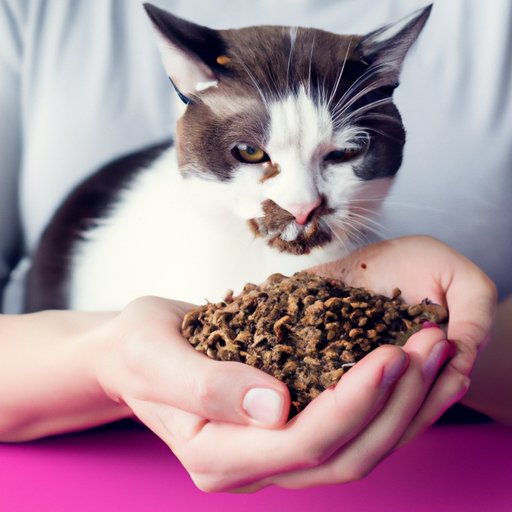
Introduction
More and more pet owners are turning to grain-free cat food as the best choice for their feline friends. Though many are skeptical about whether it’s necessary, research and anecdotal evidence suggest that going grain-free can have significant health benefits for cats.
This article will explore the pros and cons of feeding your cat grain-free food, the science behind these diets, and ways to transition your cat to a grain-free diet.
Why Grain-Free Cat Food Might Be the Healthiest Choice for Your Feline Friend
Grain-free cat food may be the ideal choice for cats with allergies or digestive issues. Cats may find it challenging to digest grains like wheat, which could cause bloating, constipation, and intestinal irritation.
Most grain-free cat foods contain proteins like chicken, beef, or fish, which mimic a cat’s natural diet, and provide the necessary nutrients for their growth and development. These diets also tend to have fewer carbohydrates, which may be healthier for cats.
Research has shown that feeding a cat a grain-free diet could significantly reduce the likelihood of them developing food allergies and skin problems. In some cases of chronic diarrhea, cats can benefit from a grain-free diet, which can significantly improve their gut health.
Understanding Grain-Free Cat Food: A Comprehensive Guide for Pet Owners
Grain-free cat food is a type of cat food that does not contain grains like wheat, corn, or rice. Instead, it is made up of high-quality protein sources, healthy fats, and other nutritious ingredients that cats need to thrive.
The ingredients used in grain-free cat food are often more expensive than more traditional cat food, and the cost tends to be higher as a result. However, the benefits of grain-free cat food may outweigh its cost for pet owners seeking optimal nutrition for their cats.
The Pros and Cons of Feeding Your Cat Grain-Free Food
As with most things, there are both pros and cons associated with feeding your cat a grain-free diet.
One of the primary benefits of a grain-free diet is that it can significantly reduce a cat’s risk of developing food allergies and digestive issues. Additionally, some believe that grain-free diets are a more natural choice, since cats are carnivorous animals and require a diet based on animal protein.
Some potential drawbacks of grain-free cat food include the expense and potential nutrient deficiencies. Grain-free cat food tends to be more expensive than traditional cat food options, and some types may not meet all of the nutritional needs of cats. Additionally, there is limited scientific research available on the long-term effects of feeding cats a grain-free diet.
Investigating Grain-Free Cat Food: What Science Says About Its Impact on Feline Health
The evidence supporting grain-free cat food is limited, but still informative. One study published in the Journal of Experimental Biology found that cats fed a high-protein, low-carbohydrate diet exhibited better glucose tolerance, weight loss, and metabolic health than those on a diet with a higher carbohydrate content.
While more research is needed, it appears that grain-free cat food could play an important role in feline health.
Making the Move to Grain-Free Cat Food: A Step-by-Step Guide for Pet Owners
Before making the switch to grain-free cat food, it’s crucial to monitor your cat’s behavior and consult with your veterinarian.
When introducing new food, it’s best to make the transition slowly over the course of a week or so, gradually increasing the amount of grain-free food your cat eats. Monitor their behavior closely during this time, and note any changes in their health or behavior.
Some cats can experience bloating and digestive issues when transitioning to grain-free cat food. Adding probiotics to their diet can support healthy gut function and make the switch smoother.
Conclusion
If you’re considering switching your cat to a grain-free diet, there are essential things to consider before doing so. However, with careful monitoring and attention to your cat’s needs, they may experience significant health benefits as a result. Always consult with your veterinarian before making any significant changes to your cat’s diet.





